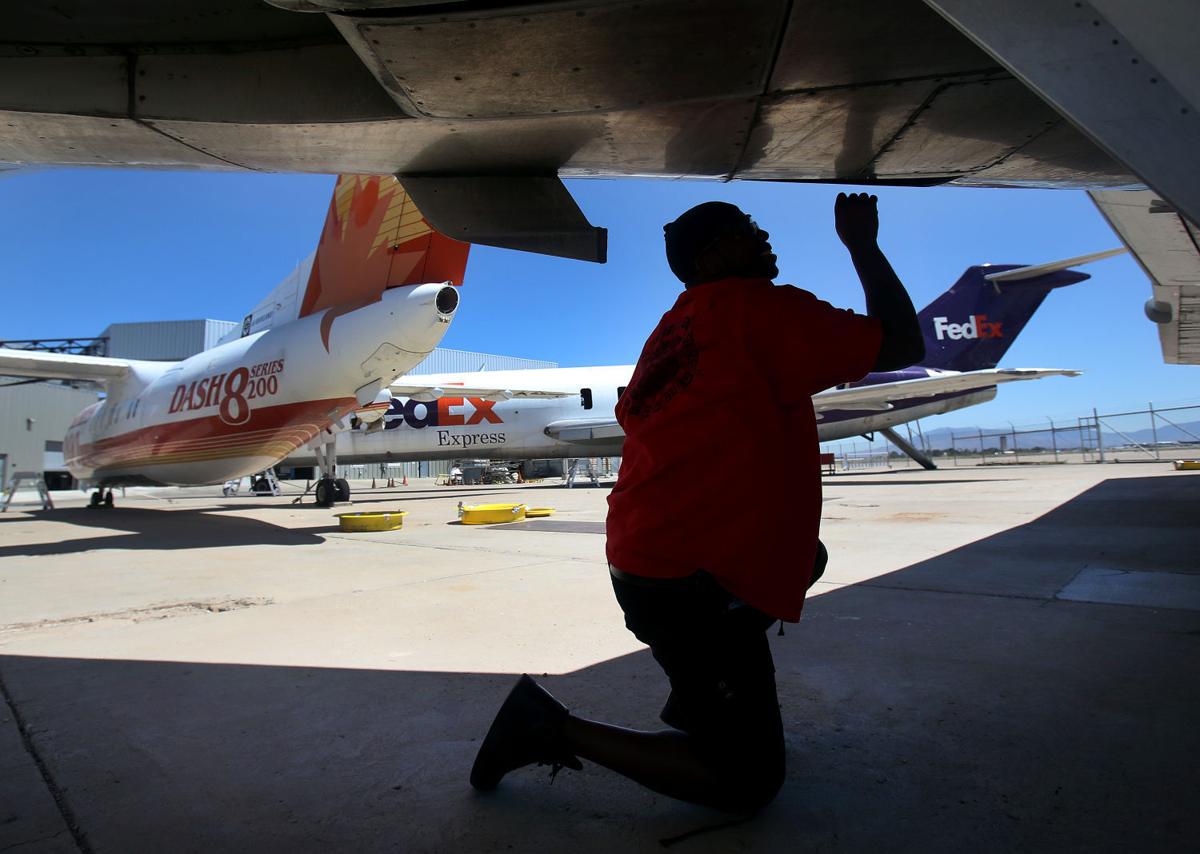Arizona public records and public meetings law applies to Pima Community College, yet the institution, which is funded by local taxpayers, has behaved as if its employees and board members, not the law, gets to decide what the public should know. This practice is unacceptable.
The latest instance involves problems with accreditation of the college’s acclaimed aviation center, which is located off campus, near the airport. Students were directly affected, because federal financial aid rules require that the student be enrolled in an accredited program.
According to reporting from the Star’s Carol Ann Alaimo, the PCC board discussed it six times behind closed doors in executive session since January, but also talked about it in public at a Feb. 22 meeting.
But there was no way for the public — including the aviation students who weren’t told about the problem until May — to know the board would be speaking specifically about the aviation program at that Feb. 22 meeting because it wasn’t included on the meeting agenda, as it should have been.
Instead, the Feb. 22 agenda included three items: “1. Call Meeting to Order 2. Financial Aid 3. Budget Development”
Not a word about the aviation program. Unless a member of the public had inside information, there was no way to know the scope of what would be discussed. The aviation program also was never mentioned specifically in the meeting minutes.
Yet PCC contends that “financial aid” was an adequate description of what was to be, and what was, discussed, and that they did nothing wrong.
Some officials and board members appear to believe that’s actually true, and this is highly troublesome because it’s not the first time they’ve been caught giving vague two- or three-word descriptions of what the board would discuss.
The Pima County Attorney’s Office has made two findings in recent years that PCC’s agenda notifications are inadequate. The reason for making board business public is so everyone will know, in advance, what the public entities are doing. Hiding important, but possibly damaging — as with the aviation accreditation — information behind generalities like “financial aid” insults the taxpayers, students and faculty and casts suspicion on everything the college and board does.
PCC also has not given the public real access to background materials on what the board discusses. Many places, including the city of Tucson and Tucson Unified School District, provide materials electronically, usually in advance of the board meeting.
PCC’s internal auditor looked at how the college handles public records and found that everything was fine. Yet the auditor didn’t receive all the relevant information to make such a determination. For example, PCC attorney Jeff Silvyn never shared a four-page letter from the Star’s attorney that outlined concerns with how the college handles public information — a document that any auditor would need to conduct a true, legitimate examination.
There is reason to hope. Two newer board members, Demion Clinco and Martha Durkin, have prior experience in public institutions that deal often with public records, and Mark Hanna, the board president, says it’s one of his top concerns. “Where there’s smoke, there’s fire,” he said.
Fixing this is simple: tell the public, with specifics, what the board will discuss on the agendas. Include complete minutes. Release background materials publicly before the board meetings. Err on the side of providing more information, rather than trying to keep things secret.
It’s time for PCC to stop hiding.





